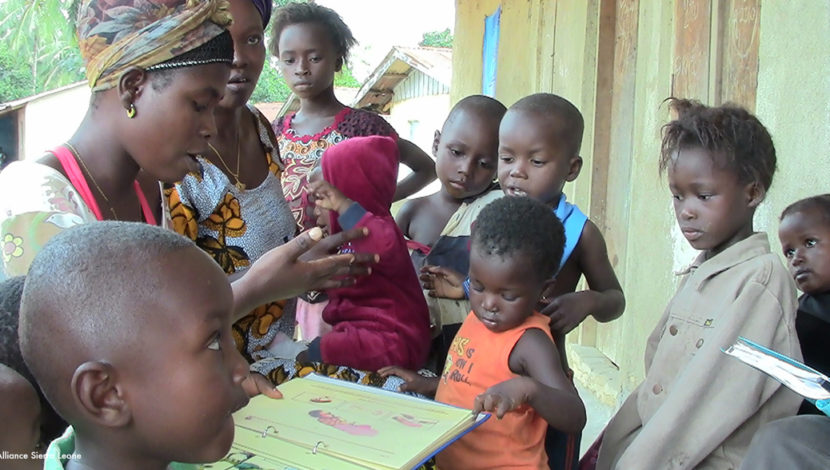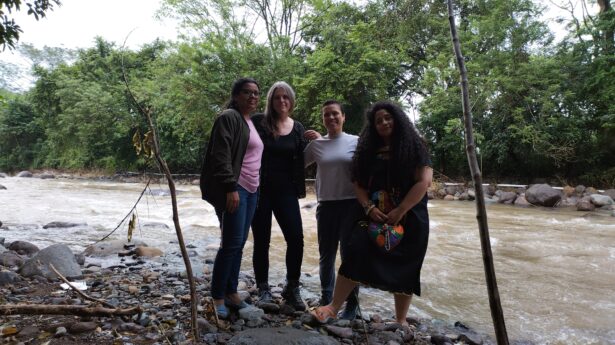The Unitarian Universalist Service Committee advances human rights through grassroots collaborations.
Containing Ebola, Preventing Future Crises

November 20, 2014
Status of epidemic
“Despite a reduction in the number of new cases of Ebola, the disease is still spreading, especially in Sierra Leone and in rural communities in Liberia,” reports Chara Itoka, UUSC’s associate director for program and partner support. According to an Associated Press article, the epidemic has killed almost 5,000 people and remains dangerous despite recent positive progress in Liberia. The article quotes Bruce Aylward, an assistant director-general for the World Health Organization: “‘Am I hopeful? I’m terrified the information will be misinterpreted and people would start to think, oh great, this is under control,’ he said. ‘That’s like saying your pet tiger is under control.’”
Responding to the crisis
Liberia
UUSC is partnering with Last Mile Health (LMH)/Tiyatien Health Liberia to train 400 frontline health care workers in remote Liberian villages to address local medical concerns in several communities. Instead of relying solely on doctors and hospitals located far away, LMH is training people in the villages where they live, engendering vital trust between health workers and those they serve.
With support from the Ebola Epidemic Relief Fund, LMH will expand services into River Cess County, where they are working with the Ministry of Health’s County Health Team. In the next six months, LMH will implement an initial training on Ebola education (contact tracing, surveillance, isolation, referral, etc.) and malaria treatment. Their long-term goal is to transition into essential health services provision in the area. LMH staff also provides technical guidance to the World Bank’s Ebola Task Force in Liberia.
Sierra Leone
In the country where the Ebola epidemic seems to be more unstable, UUSC has developed a partnership with the Wellbody Alliance, a grassroots organization that has served the remote district of Kono for the past eight years and is the only primary health-care facility open in the district.
The overall goal of UUSC’s work with the Wellbody Alliance is to improve the health and well-being of the people and communities the alliance serves, which necessitates maintaining and strengthening operations at the Wellbody clinic. In the short term, this means target interventions to proactively contain the Ebola virus in the region; in the long term, it means strengthening Kono’s public health system to prevent future crises altogether.
UUSC is working with the Wellbody Alliance on a project that includes several key components:
- Training community health workers
- Implementing the first ambulance system in the area
- Establishing an Ebola care unit in the Wellbody clinic
The project will continue the expansion of a corps of community health workers to provide house-to-house screenings, contact tracing, and compassionate preventive education. The ambulance system will offer safe, expedited transport of Ebola patients from even the most decentralized locations, and the Ebola care unit will provide dignified, high-quality care.

